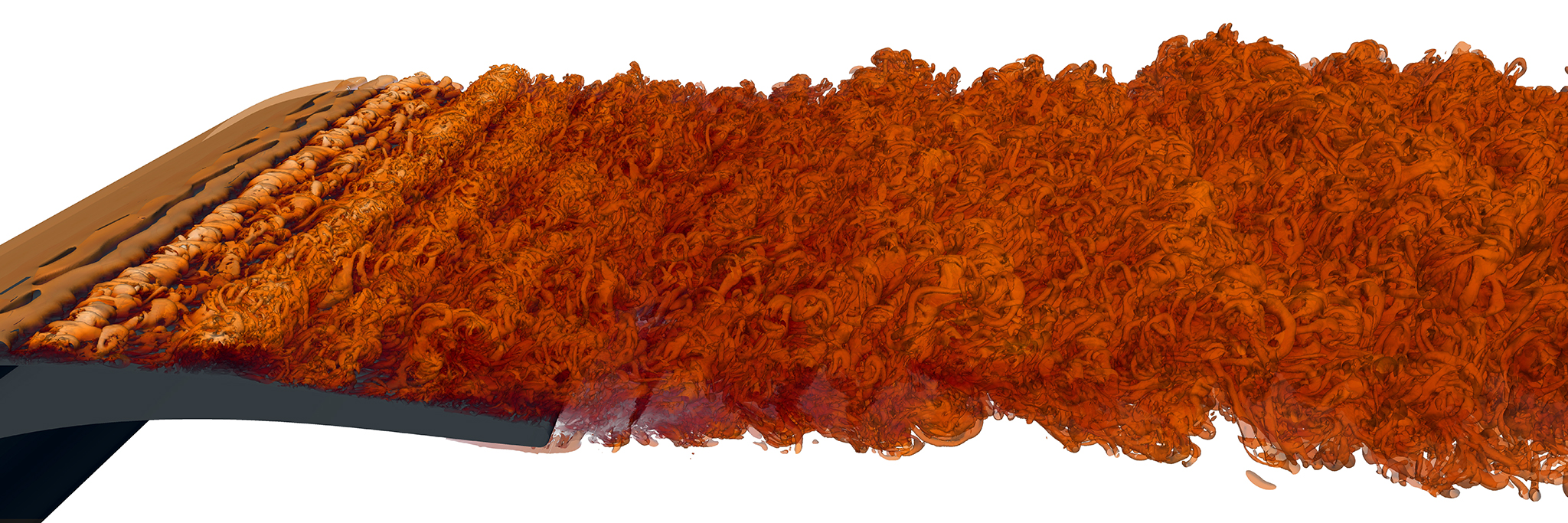Multicore and Manycore Algorithms to Tackle Turbulent flows (MUMATUR)
Description
This SIG will cover research activities related to algorithms, software, tools, data management and applications to tackle turbulent flows (single and multiphase) exploiting modern high performance computing platforms ranging from multi-core/many-core architectures to accelerators to graphics processing units.
Join SIG Mailing list
Members
L = leader; C = co-leader; * = Other key personnel
| [L] | Sylvain Laizet ( Imperial College London ): s.laizet@imperial.ac.uk |
| [C] | Charles Moulinec ( Daresbury Laboratory (STFC) ): charles.moulinec@stfc.ac.uk |
| Neil Sandham ( University of Southampton ): | |
| Spencer Sherwin ( Imperial College London ): | |
| David Standingford ( Zenotech ): | |
| Konstantina Vogiatzaki ( University of Brighton ): | |
| Simon Burbidge ( University of Bristol ): | |
| Richard Jefferson-Loveday | |
| James Jewkes ( Coventry University ): | |
| Sylvain Lardeau ( Siemens PLM ): | |
| George Papadakis ( Imperial College London ): | |
| Filippo Spiga | |
| Christos Vassilicos ( Laboratoire de Mécanique des Fluides de Lille ): | |
| Alistair Revell ( University of Manchester ): | |
| Jian Fang ( Daresbury Laboratory (STFC) ): | |
| Andrei Cimpoeru ( MBDA Systems ): |
Open-source flow solvers
PyFR is an open-source Python based framework for solving advection-diffusion type problems on streaming architectures using the Flux Reconstruction approach of Huynh. The framework is designed to solve a range of governing systems on mixed unstructured grids containing various element types. It is also designed to target a range of hardware platforms via use of an in-built domain specific language derived from the Mako templating engine.
Incompac3d is a powerful high-order flow solver for academic research. Dedicated to Direct and Large Eddy Simulations (DNS/LES), it can combine the versatility of industrial codes with the accuracy of spectral codes. It scales with up to one million CPU cores. It is written in Fortran 90 and is using MPI for its 2D Domain Decomposition.
Nektar++ is a tensor product based finite element package designed to allow one to construct efficient classical low polynomial order h-type solvers (where h is the size of the finite element) as well as higher p-order piecewise polynomial order solvers. Nektar++ is available in both a source-code distribution and as pre-compiled binary packages for a number of operating systems.
OpenSBLI is a Python-based modelling framework that is capable of expanding a set of differential equations written in Einstein notation, and automatically generating C code that performs the finite difference approximation to obtain a solution. This C code is then targetted with the OPS library towards specific hardware backends, such as MPI/OpenMP for execution on CPUs, and CUDA/OpenCL for execution on GPUs. The main focus of OpenSBLI is on the solution of the compressible Navier-Stokes equations with application to shock-boundary layer interactions (SBLI). However, in principle, any set of equations that can be written in Einstein notation may be solved.
Code_Saturne is a multi-physics CFD open source software first developed by industry, and now widely spread in academia. It relies on the finite-volume method to discretise the equations up to 2nd order in space and time, and is suitable for LES in complex geometries, as its unstructured nature support sany type of cells. It is written in C, Fortran and Python is used to manage the simulations. MPI/OpenMP handle parallelisation, and the code has shown good performance on over 3 million threads on Argonne's Blue Gene/Q.
